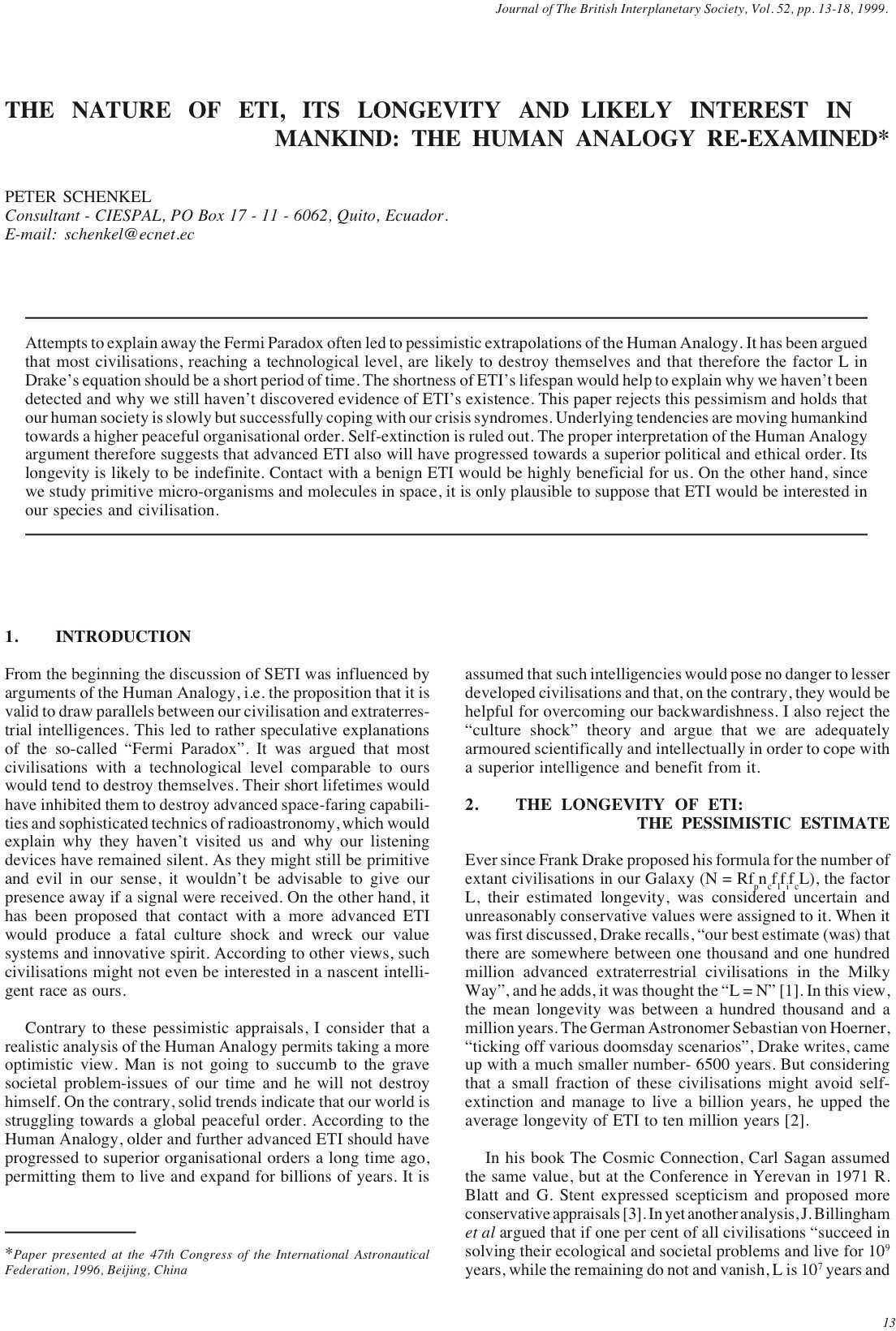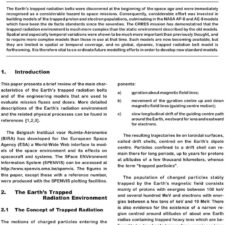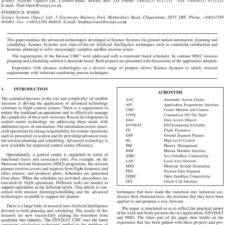The Nature of ETI, Its Longevity and Likely Interest in Mankind – The Human Analogy Re-Examined
£5.00
P. Schenkel (1999), JBIS, 52, 13-18
Refcode: 1999.52.13
Abstract:
Attempts to explain away the Fermi Paradox often led to pessimistic extrapolations of the Human Analogy. It has been argued that most civilisations, reaching a technological level, are likely to destroy themselves and that therefore the factor L in Drake’s equation should be a short period of time. The shortness of ETI’s lifespan would help to explain why we haven’t been detected and why we still haven’t discovered evidence of ETI’s existence. This paper rejects this pessimism and holds that our human society is slowly but successfully coping with our crisis syndromes. Underlying tendencies are moving humankind towards a higher peaceful organisational order. Self-extinction is ruled out. The proper interpretation of the Human Analogy argument therefore suggests that advanced ETI also will have progressed towards a superior political and ethical order. Its longevity is likely to be indefinite. Contact with a benign ETI would be highly beneficial for us. On the other hand, since we study primitive micro-organisms and molecules in space, it is only plausible to suppose that ETI would be interested in our species and civilisation.





